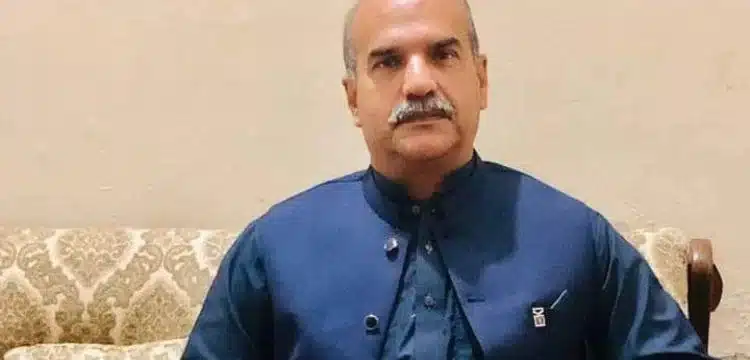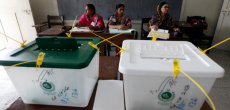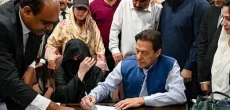[vc_row][vc_column][vc_column_text dp_text_size=”size-4″]In Abbottabad, Pakistan Tehreek-i-Insaf (PTI) leader Imran Immi met a tragic end as unidentified assailants fatally shot him outside his residence on Friday. Immi, a recently affiliated leader of the Imran Khan-led PTI, became the victim of a violent attack, adding to a series of assaults on politicians in the region.
As of now, the police have not yet registered a case against the assailants, and the motives behind the attack remain shrouded in uncertainty. Investigators are grappling with the challenge of discerning whether the incident was a result of a targeted assault or stemmed from personal enmity.
Read more: PTI-Backed Candidate Rehan Zeb Khan Fatally Shot In Bajaur
Imran Immi’s brutal killing has sent shockwaves through the local community in Abbottabad and has also heightened concerns about the security situation leading up to the elections. The incident underscores the perilous conditions faced by political leaders, particularly in Khyber Pakhtunkhwa (KP) and Balochistan.
The grim reality of political violence is further emphasized by recent events, such as the postponement of elections in Bajaur after the PTI-backed candidate, Rehan Zeb, was shot dead just a week before the scheduled voting. The candidate was conducting an election campaign in the Sadiqabad Phatak Bazar area when unknown gunmen attacked, resulting in his immediate demise.
This tragic incident is not isolated, as earlier in the week, a bomb blast targeted a political rally organized by PTI in Sibi, Balochistan. The blast claimed the lives of four individuals and left five others injured, highlighting the vulnerability of political gatherings to acts of violence.
The overall situation depicts a disturbing trend, with political leaders facing significant threats to their safety, especially in regions like KP and Balochistan. The assassination of Imran Immi adds another layer to the growing concerns about the security landscape leading up to the elections. The uncertainty surrounding the motives behind these attacks contributes to an atmosphere of apprehension and underscores the need for heightened security measures.
The incidents also raise questions about the broader implications for political engagement and the democratic process in Pakistan. The safety of political figures and the ability to conduct campaigns and rallies without fear of violence are crucial components of a functioning democracy. The targeted attacks on political leaders pose a challenge to the democratic ideals that underpin the electoral process.
As investigations unfold, the authorities will be pressed to address the root causes of this surge in political violence and implement measures to ensure the safety of candidates and participants in the electoral process. The upcoming elections are now shadowed by the somber reality of political insecurity, necessitating a comprehensive response to safeguard the democratic principles that are fundamental to Pakistan’s political landscape.[/vc_column_text][/vc_column][/vc_row]











